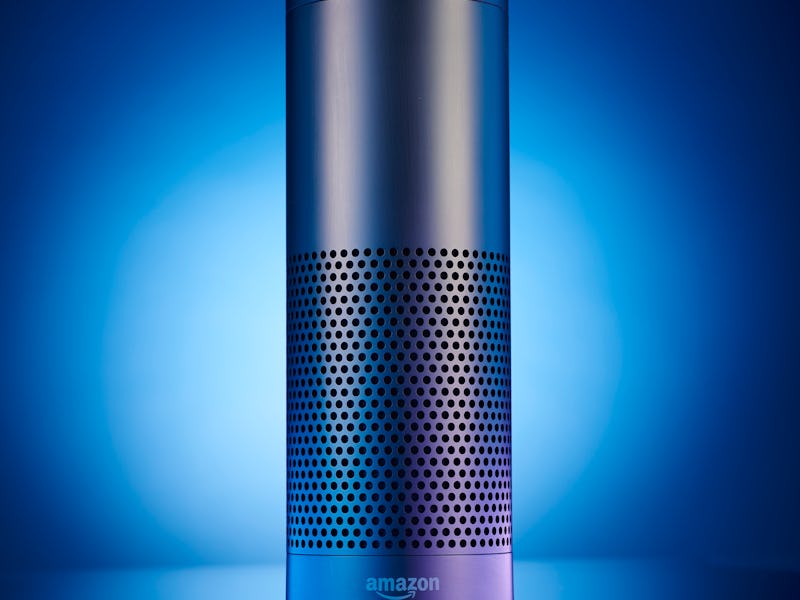Why Apple's rumored smart display could be doomed from the start
While Apple has dragged its feet on entering the smart home space, Google and Amazon have tightened their vice grip.

Apple has managed to do a little bit of everything over the years. Obviously, it’s continued the train of tried and true laptops, phones, and tablets, but it’s also segued into wearables, trackers, and loads of services that branch into gaming, fitness, entertainment, and — still dumbfoundingly — banking.
In its conquest of all things technology, however, there’s still one category that has always felt, in my humble opinion, underserved: I’m talking about smart homes. And according to a recent report from Bloomberg’s Mark Gurman, that could finally change.
Gurman’s latest scoop — a follow-up to a rather grim forecast for Apple’s rumored AR glasses — suggests that Apple is interested in finally diversifying its smart home offerings with a couple of products. One of them, according to Gurman’s sources, is a display that acts as a hub for your smart home products. Per Gurman:
The push into smart displays will start with a tablet product — essentially a low-end iPad — that can control things like thermostats and lights, show video and handle FaceTime chats, people with knowledge of the plans said. The product could be mounted on walls or elsewhere using magnetic fasteners, positioning it as more of a home gadget than a regular iPad.
The second smart home offering, according to Bloomberg’s report, is a bit of a head-scratcher: “a long-anticipated product that would combine the TV box with a smart speaker and FaceTime camera.”
From a business perspective, both of those endeavors make sense — it’s 2023 and people have spent the better part of the last decade cramming their homes full of smart home devices. But on the other hand, it’s 2023, and while Apple has spent time trying to nail the formula down, its rivals have plowed ahead, capturing every bit of the smart home market they can grab.
HomePod or not, Apple has fallen behind the competition.
Home alone
I know it’s foolish to count Apple out of any market. Even with the successful raft of Google- and Amazon-branded smart home products, and the confidence and trust they’ve established with consumers, Apple might just make a better product. Maybe its smart displays will look nicer; maybe they’ll get creative with UI; maybe it’s enough just to sport Apple’s logo.
But I can’t shake the feeling that smart homes are a different animal. Ecosystems are always a thing in technology (buying Apple products begets more Apple products), but owning a smart speaker with say, Google Assistant, strongly incentivizes consumers to buy more products from Google.
I can attest to the confusion hybrid smart homes can create.
As someone who has lived in a dual Alexa and Google Assistant household, I can attest to the confusion hybrid smart homes can create. And there’s familiarity — Google and Amazon’s smart home offerings have that in spades. You learn the systems; you download the apps; you know the quirks and presumably have come to terms with them.
Yes, Apple’s HomePod technically occupies the same space, but Apple’s smart speakers haven’t enjoyed nearly the same success as cheaper offerings from Amazon.
Will consumers really be willing to disrupt their delicate smart home balance and jump ship to Apple’s relatively new ecosystem? Maybe, if Apple brings something unique to the table. But the fact that it’s even a question worth asking should tell you what it’s up against.
The heart of the Matter
Samsung’s SmartThings Station is a Matter-compatible smart home hub.
There’s at least one factor that could greatly assist Apple in its play for a larger share of the smart home market: Matter.
Matter, an increasingly popular smart home protocol, aims to foster interoperability between smart home products. That means in the future, Matter-certified products, regardless of whether they’re made by Google, Amazon, or Apple, should all play a lot nicer with each other.
Hopefully, for everyone’s sake, that means fewer hard-lined ecosystems and greater ease of use for people building smart homes. If Matter succeeds in its mission, Apple has a smoother path to people’s homes, even if Google and Amazon still win the familiarity contest.
It’d be silly to count Apple out of anything.
Then again, according to Gurman’s sources, more Apple-branded smart home products could take another year to arrive, which gives direct competitors like Google’s upcoming Pixel tablet an even bigger headstart.
I’m no fool. It’d be silly to count Apple out of anything — arguably no other tech company has fostered the extreme loyalty and reverence amongst tech nerds like Apple. But in this case of smart homes, I still think it’s worth asking: Is being late really better than never?
This article was originally published on